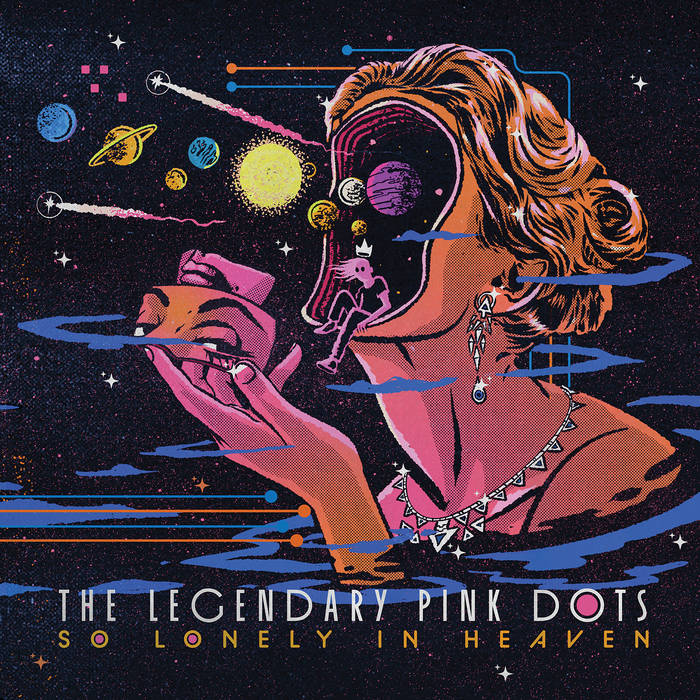
In 40 years of creating music, Edward Ka-Spel and Legendary Pink Dots have rarely sounded so perfectly in tune with the world they’ve long warned us about. So Lonely in Heaven isn’t just another album; it feels like an artifact for our time, a mirror held up to the fragile, dystopian reality we’ve stumbled into. The Dots’ vision—once surreal, exaggerated, otherworldly—now feels disturbingly prescient. What was once a world imagined through their “Terminal Kaleidoscope” has merged with the one we live in. Maybe it was always this bad, and Ka-Spel has been trying to show us all along.
This is a heavy album—not just in tone, but in its emotional resonance. The question of whether we missed the point of life on Earth looms large. Did we abandon the imperfect connections that give us meaning to chase a perfect yet sterile paradise? The machine that Ka-Spel describes in the Bandcamp notes embodies this disconnection. It knows us, replicates us, promises perfection, but leaves us hollow and alone. In So Lonely in Heaven, Ka-Spel’s lyrics and the band’s haunting arrangements explore the cracks in that illusion, asking whether we need life’s imperfections—its traumas, its fragility—to truly live.
The album opens with one of the most melodically striking tracks the Dots have released in years, establishing a sound that’s more cohesive and structured without losing the surreal edge they’re known for. Erik Drost’s guitar takes on a central role, weaving through Randall Frazier’s layered synthesizers and electronics to create something simultaneously grounded and otherworldly. Ka-Spel’s lyrics remain provocatively astute, unafraid to probe the darkest corners of the human condition.
“Cold Comfort” is the album’s beating heart. The lines “Cold comfort when the earth feels scared / Cold comfort through the screen / We're just not made for these times / No comfort from our dreams" reflect an unsettling truth about how we experience the world now—through filters, layers, and distance. But the closing sentiment—“We were not made for this place / Still we love”—offers a small yet defiant glimmer of hope. It’s a reminder that even in the face of disconnection, the human spirit is still capable of love, resilience, and beauty.
Elsewhere, tracks like “Sleight of Hand” channel bleakness into haunting beauty, while “Choose Premium / First Prize” cuts through the absurdities of late-stage capitalism with Ka-Spel’s biting commentary. Drost’s guitar work on “Wired High / Too Far to Fall” blends seamlessly with Frazier’s electronics, creating layered textures that highlight the band’s dynamic range and ability to balance urgency with atmosphere.
The world Ka-Spel has sung about for decades—a place of fragile humanity, alienation, and a machine slowly devouring us—feels closer than ever, as if we’re living the culmination of his warnings. Yet So Lonely in Heaven isn’t just despairing; it’s deeply reflective, asking if our fragile planet, our fleeting connections, and our shared traumas are what make us truly alive. Perhaps it’s not too late to heed the warnings woven into the Dots’ music over the decades, to cherish what’s imperfect and fleeting about life before it slips away entirely.
So Lonely in Heaven is more than an album—it’s a meditation on the fragility of existence and the choices we make as we navigate an increasingly fractured world. It’s a Nation of One, yes, but also an urgent call to remember the things that tether us to each other and to this fragile life. In a world on the brink, this is an album we don’t just want—we need.

